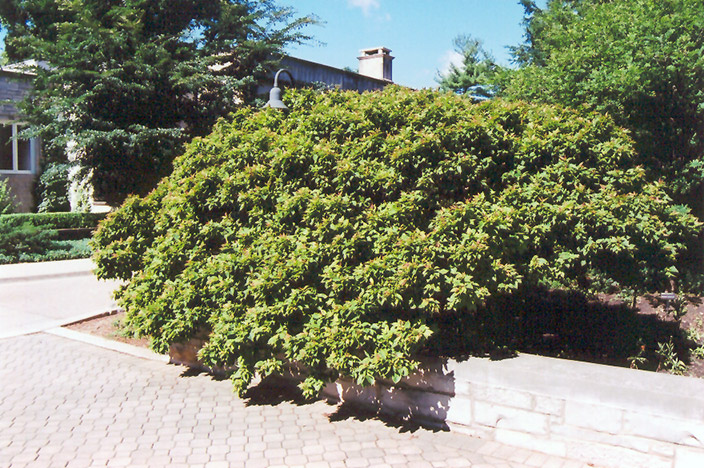* This is a "special order" plant - contact store for details
Height: 4 feet
Spread: 4 feet
Sunlight:
![]()
![]()
Hardiness Zone: 4
Description:
An interesting naturally dwarf dogwood with a compact habit of growth; white flowers in spring are followed by black berries in summer, foliage maintains a purplish cast throughout the season; a little known but worthy garden shrub
Ornamental Features
Dwarf Redtip Dogwood has attractive deep purple-tipped dark green foliage on a plant with a round habit of growth. The pointy leaves are highly ornamental but do not develop any appreciable fall colour. It has clusters of white flowers at the ends of the branches in late spring. It produces black berries in mid summer. The dark red branches add an interesting dimension to the landscape.
Landscape Attributes
Dwarf Redtip Dogwood is a dense multi-stemmed deciduous shrub with a more or less rounded form. Its average texture blends into the landscape, but can be balanced by one or two finer or coarser trees or shrubs for an effective composition.
This is a relatively low maintenance shrub, and can be pruned at anytime. It is a good choice for attracting birds to your yard. It has no significant negative characteristics.
Dwarf Redtip Dogwood is recommended for the following landscape applications;
- Mass Planting
- Hedges/Screening
- General Garden Use
- Naturalizing And Woodland Gardens
Planting & Growing
Dwarf Redtip Dogwood will grow to be about 4 feet tall at maturity, with a spread of 4 feet. It tends to fill out right to the ground and therefore doesn't necessarily require facer plants in front. It grows at a slow rate, and under ideal conditions can be expected to live for approximately 20 years.
This shrub does best in full sun to partial shade. It prefers to grow in average to moist conditions, and shouldn't be allowed to dry out. It is not particular as to soil type or pH. It is highly tolerant of urban pollution and will even thrive in inner city environments. This species is not originally from North America.
* This is a "special order" plant - contact store for details







